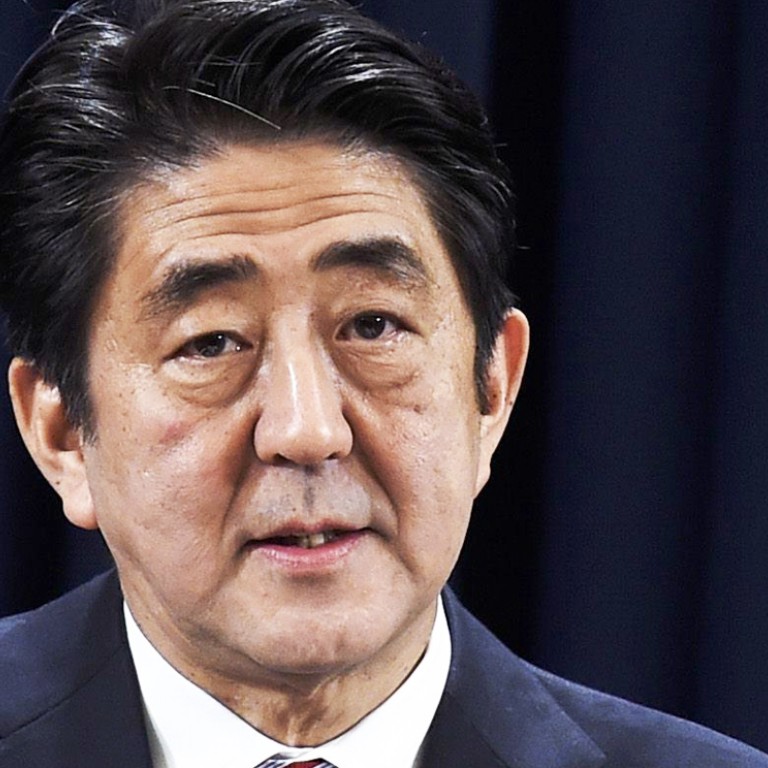
Japanese Prime Minister Shinzo Abe looking more likely to call a snap election
With Japan's opposition parties in disarray, analysts say Prime Minister Shinzo Abe could consolidate his position by calling a poll in December
There is a growing expectation that Japanese Prime Minister Shinzo Abe will call a snap general election in December to capitalise on the opposition's disarray while his own support figures remain solid in comparison.

Those figures will include gross domestic product for the July-September period.
A recovery in Japan's economy has stalled since the consumption tax was increased from 5 per cent to 8 per cent on April 1, with a second increase, to 10 per cent, scheduled for next October.
If the figures are disappointing, the rumours suggest, Abe will either cancel the second phase of the tax rise outright or delay it for a further 12 months. And instead of fighting an economic battle, he will switch his attention to a political campaign.
"If I were a betting man, I would say that he will go ahead and call an election before the end of the year," said Jun Okumura, a visiting scholar at the Meiji Institute for Global Affairs.
"The chatter is just getting too substantive for it to be anything else," he said, although Abe has played down such suggestions.
On Sunday, shortly before boarding a flight to Beijing to attend the Apec forum, Abe told reporters: "I'm not thinking about dissolving the lower house [of the Diet] at all."
In a poll conducted over the weekend by national broadcaster NHK, the support rate for Abe's cabinet had fallen eight percentage points to 44 per cent, the lowest since he won the general election in December 2012. Analysts point out, however, that the poll was conducted before Abe secured a meeting with President Xi Jinping , a diplomatic breakthrough that is expected to provide a bounce in the polls.
And while Abe's figures may have worsened, he is still streets ahead of the opposition .
"He will see this as a great chance to catch the opposition on the wrong foot," Okumura said. "They are simply not ready to fight an election; they don't have the candidates or the arrangements in place and they won't have enough time to get their acts together.
"The opposition parties are divided; they have too many leaders and not enough followers and I see little likelihood of them gaining much ground on the Liberal Democratic Party."
And that is despite a number of problems the ruling party has had in recent months.
Critics of the prime minister's much-vaunted "Abenomics" policies say they are failing to have the planned impact on the economy, while two female cabinet ministers were forced to resign within hours of their appointments in October over financial irregularities.
Yet Abe still likely believes he has enough in his locker to defeat the fragmented parties that he faces in the Diet.
Okumura believes any decision on a snap election will have less to do with the tax rise and will be more about "the chance to trounce the opposition again".
"I would say that postponing the tax increase could work against the government because it could be interpreted as an admission that Abenomics is not working as well hoped," he said.
"And none of us knows what the economy will look like in 12 months' time."

